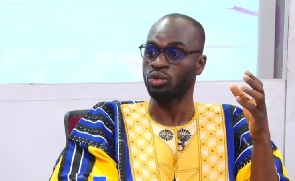Technical Advisor to the Vice President of Ghana, Dr. Abdul-Kabiru Tiah Mahama has mentioned that it is possible to express your opinions and concerns in a respectful way without resorting to vulgar language.
“What I am basically saying is that, we are building a society, you can still drum home your concerns. You can still make your points you can send across your grievances without being vulgar,” he stated.
His statements come on the back of questions being raised on the incident that was captured in the protest to remove the governor of the Bank of Ghana. While speaking on the protest incident on GBC’s Focus show on October 4, 2023, he maintained that democracy allows the expression of dissatisfaction but in our context, it should be done devoid of unsavory statements on placards and by protestors.
Dr. Abdul-kabiru expressed his worry about the choice of words used by protesters to describe high officials and elders in the country all in the name of protest. He also bemoaned the portrayal of lawlessness on the side of the protesters.
“My only worry is the tendency for protesters and demonstrators to take the law into their own hands that was not experienced largely. The only worry was the choice of words, language and the kind of society that we live in that is also a source of worry because as much as you want to promote civic responsibility and civic awareness, as part of that civic responsibility is the responsibility to be civil in your language,” he added
He further added that, if this act is not dealt with, future generations, particularly children, would read about these behaviors without understanding that it was done in the context of politics and possibly misinterpret their meaning.
“You wonder if their children will be happy, one day if the table turns and some other people are holding similar placards and my youth, children are now very much internet aware. And most of these are recorded Eternally. It will come to a time that they will read about them and they will not even know that they were in a context of politics,” he concluded.
Politics of Thursday, 5 October 2023
Source: gbcghanaonline.com

















